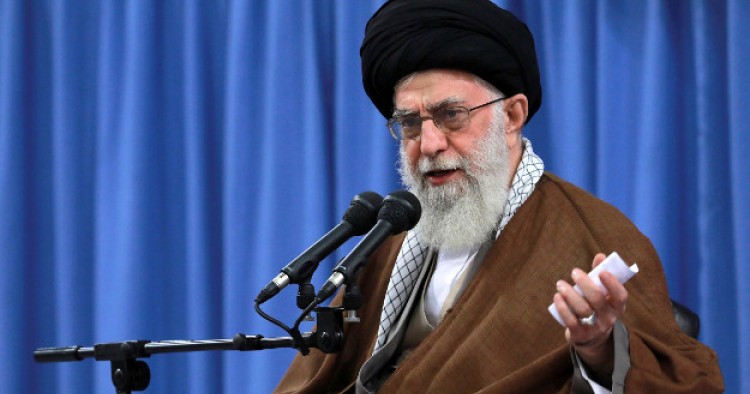Supreme Leader Ali Khamenei warned Wednesday that Iran’s “enemies” use intimidation and scare tactics to achieve their goals, and called on political and military leaders to disregard and resist their threats. “The worst scenario for a country is that its officials would be frightened by the enemy’s intimidation, since it will open the door for its (the enemy’s) intrusion and aggression,” he cautioned. He particularly urged the country’s military forces to keep countering the policies of the United States and certain European states. He also warned that Iran’s adversaries target weak points of the Iranian economy and stressed the need to strengthen the country’s “resistance economy.” He continued: “I expect the officials to try to correct economic deficiencies and close loopholes as they observe the enemy’s motive for abusing the economic weak points,” Ayatollah Khamenei added. At the end, Khamenei said government leaders should be vigilant toward enemy plots aimed at disrupting Iran’s upcoming presidential elections.
Comment: Khamenei’s remarks indicate that the leadership in Tehran is worried about the Trump administration’s more aggressive policies vis-à-vis the Islamic Republic. In the past three months, the Trump administration has included Iran in the temporary travel ban, sanctioned Iranian individuals and entities associated with the country’s missile program, strengthened ties with America’s traditional Arab allies to counter Iranian threats, and pledged to push back against Iran’s destabilizing role in the region.
The term “resistance economy” is used by Iranian leaders for a set of policies that should promote domestic production and self-sufficiency, reduce dependency on foreign imports, and make Iran more resistant to external economic shocks. Khamenei has recently put increased pressure on the Rouhani government not to rely on improved ties with the West and instead to improve the country’s fragile economy by boosting domestic production.And despite repeated warnings from Washington, the Supreme Leader has urged the Iranian military not to halt its production of ballistic missiles.
The Middle East Institute (MEI) is an independent, non-partisan, non-for-profit, educational organization. It does not engage in advocacy and its scholars’ opinions are their own. MEI welcomes financial donations, but retains sole editorial control over its work and its publications reflect only the authors’ views. For a listing of MEI donors, please click here.












